R.J. Stowell's Blog: rjsomeone, page 6
June 14, 2021
The last Sunset Blvd. billboard my father painted was Tal...
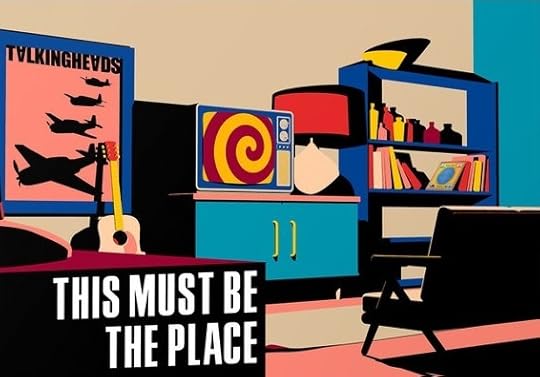
The last Sunset Blvd. billboard my father painted was Talking Heads ’77. While his artwork that graced the Strip was often complex (Yes’s Close to the Edge, The Doors’ L.A. Woman), TH77 was the simplest he’d ever done: a red-orange background with the words Talking Heads ’77 in a brilliant chartreuse. It wasn’t an album I would have picked up on my own but my father brought home a copy, which I still have. In 1979 I got More Songs About Buildings and Food and Fear of Music on cassette for the car. The latter saw the band explore new musical possibilities spurred on by producer Brian Eno whose input led to darker and more worldly themes – far less esoteric. Eno and David Byrne then collaborated on My Life in the Bush of Ghosts and pushed further into the avant-garde with sampled vocals and instrumental loops. By this point, Harrison, Weymouth and Frantz were aggravated, feeling like Byrne’s backing band. Frantz and Weymouth (married) discussed the possibility of leaving Talking Heads, but instead bought a home in the Bahamas near Compass Point Studios in Nassau. They realized that, like the Beatles with Abbey Road, there was only one way through the band’s tumult, working together. Convening at Compass Point, the collective decided to further pursue the world groove and in particular, Afro-funk, giving it a modern edge utilizing 80s technology. With this creative burst (Bryan and David both at their musical apex) Byrne endeavored to create lyrics using a stream of consciousness that one could compare to William S. Burroughs, but David was hard-pressed to get over a sudden writer’s block.
Due to this, few vocals were recorded in the Bahamas. The writing process for the lyrics only occurred when Byrne returned home to New York City. Harrison booked Talking Heads into Philadelphia’s Sigma Sound, and with Eno, the pair spent their time tweaking the compositions recorded in the Bahamas. Funny how genius is complicated. Remain in Light was an album that would teeter between the sublime and the unfinished. Again an Abbey Road comparison (I’ll hear about this ad infinitum), the recording sessions built up its pace with the recruitment of guitarist Adrian Belew at the bequest of Byrne, Harrison and Eno (for the Beatles, it was Billy Preston), and despite the hurdles, the sessions were laid down without further adieu.
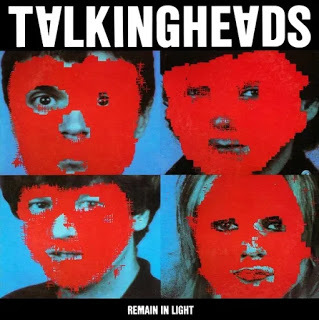 With its melding of musical styles, Remain in Light is a perfect New York time capsule meshing post-punk, no wave, underground disco, funk, African and experimental sensibilities in a CBGB style. It was in a class of its own and critics and fans embraced it, as did MTV who put “Once in a Lifetime” into heavy rotation.
With its melding of musical styles, Remain in Light is a perfect New York time capsule meshing post-punk, no wave, underground disco, funk, African and experimental sensibilities in a CBGB style. It was in a class of its own and critics and fans embraced it, as did MTV who put “Once in a Lifetime” into heavy rotation.Remain in Light is what minimalism and repetition are all about. Talking Heads created an electrifying atmosphere of paranoia (I guess they always did). With every repetitive spider riff or tribal vocal phrase, the listener is mired deeper and deeper into the surreal. And that feeling that life is a Beckett play and you're watching it from behind a glass darkly doesn’t infringe upon the funk.
Is it the best LP of the 80s? The competition is great but, could be.
June 11, 2021
n. slang, the image of a person, usually with only the head and upper body visible, talking to the camera, as in a documentary, news show, or similar work
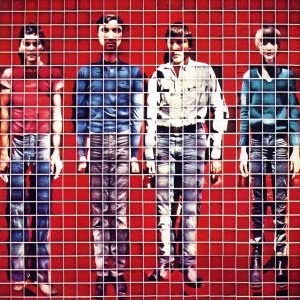
Early in 1976, RISD students, Talking Heads (David Byrne, Chris Frantz and Tina Weymouth), made their first demo, recording "Psycho Killer," "First Week, Last Week/Carefree" and "Artists Only" for Beserkeley Records. The result, completed with a live version of "1,2,3 Red Light" (which didn't surface as a bootleg EP until the early eighties), revealed the group to have had a simple, eclectic charm that was vanishing by the time they made their first LP. Later demo sessions followed in the summer of '76, and in November, the group signed with Sire Records - home of the Ramones and the Flamin' Groovies. In December, the three-piece line-up recorded its first single, "Love Goes To Buildings On Fire"/"New Feeling" - issued early in the new year. Neither track has appeared on a Talking Heads LP, although "New Feeling" was re-cut for the debut album, and the A-side was included on Sire's New Wave Sampler. By the time the single was released, Talking Heads had become a four-piece. Jerry Harrison, guitarist in the original Modern Lovers behind Jonathan Richman, had been recommended to the group; after a couple of trial gigs late in 1976, he agreed to join the band as soon as his other commitments were fulfilled.
In April, the foursome began recording their first LP, which was completed in July after a series of gigs in Europe. Talking Heads 77 was issued in September 1977 in the States, a month later in the U.K. The album was a minor triumph. While other New York acts concentrated on getting across their emotions with raw power, Talking Heads made gentle, almost placid music, saving their killer punch for the lyrics.
For my father, it was one of the simplest billboards he had ever painted; simply a red orange background with yellow letters 4½ feet high that said "Talking Heads 77." As an Angeleno, and just a kid at the time, I had no exposure to the New York Scene at CBGBs – no Blondie, no Ramones, no Talking Heads. L.A. was about jazz and a lighter, more accessible rock (Weather Report, The Eagles, Fleetwood Mac and Steely Dan, and the myriad of amazing music from an amazing year), and somehow it glossed over the New York scene. Conversely London's new wave, from Elvis Costello and Joe Jackson to the Clash made it to the clubs. Out of it would come L.A. punk, with New York playing little role in L.A.'s evolution. Talking Heads were the exception.
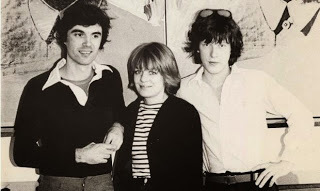 Talking Heads at the Factory, 1977Six months later, July 1978, the band released More Songs About Buildings and Food, and struck it big with the hit "Take Me to the River," a cover of the 1974 Al Green tune. Of the album, Salon wrote: "More Songs About Buildings and Food [is] a backwards exorcism of frozen-brittle guitars, smeared textures and super-ecstatic vocals. The record brought forth an essential darkness and didn’t try to extinguish it. These were songs about emotions that lurk, about the secret part of ourselves that knows people can see right through us on buses, planes and subways, all sung by a disjointed, ferocious, manic, shivering guy named David Byrne It was a kind of State of the Union address, examining the nation’s health from a dozen different angles, including the sky." Talking Heads were the art rock to come.
Talking Heads at the Factory, 1977Six months later, July 1978, the band released More Songs About Buildings and Food, and struck it big with the hit "Take Me to the River," a cover of the 1974 Al Green tune. Of the album, Salon wrote: "More Songs About Buildings and Food [is] a backwards exorcism of frozen-brittle guitars, smeared textures and super-ecstatic vocals. The record brought forth an essential darkness and didn’t try to extinguish it. These were songs about emotions that lurk, about the secret part of ourselves that knows people can see right through us on buses, planes and subways, all sung by a disjointed, ferocious, manic, shivering guy named David Byrne It was a kind of State of the Union address, examining the nation’s health from a dozen different angles, including the sky." Talking Heads were the art rock to come.The Heads' sophomore effort saw the first of their production/collaborations with Brian Eno, who adds a smoothness and depth to the angular and jerky-yet-machinistic moves from the Heads' practica, while Byrne's songwriting starts to merge with the growing atmospheric sensibilities that would emerge as this creative partnership evolved. Here Byrne's lyrics enhance their look at a dark world, a pattern that would grow to overwhelming levels on the subsequent two albums. I can't tell you how many times I listened to this album in my youth. Good to the last drop. Their masterpiece? Perhaps. Indispensable? You know it. Another side of the seventies; 40 years ago.
"What are you painting?" I asked him. He never knew.
"It says, 'Talking Heads '77'." He didn't know Elton John, he surely wouldn't have known Talking Heads. Nor did I, but he took me to Tower Records and I bought it with birthday money; a cassette. He took me to Ben Frank's. I had a chili-size and a chocolate Coke. He had breakfast. - From Jay and the Americans
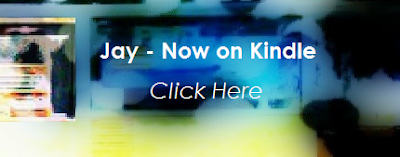
June 8, 2021
Tin Drum After 40 Years
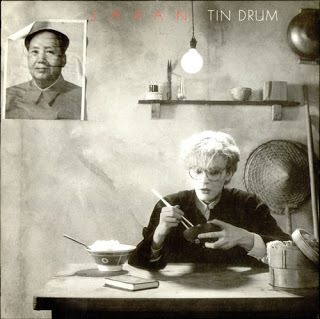 Tin Drum
(AM8)Artist: JapanProduced by: Steve Nye, JapanReleased: November 13, 1981Tracks (All songs by Sylvian unless noted): 1) The Art of Parties – 4:09; 2) Talking Drum – 3:34; 3) Ghosts – 4:33; 4) Canton (Jansen/Sylvian) – 5:30; 5) Still Life in Mobile Homes – 5:32 6) Visions of China (Jansen/Sylvian) – 3:37; 7) Sons of Pioneers (Karn/Sylvian) – 7:07; 8) Cantonese Boy – 3:44Players: David Sylvian – vocals, guitar, keyboards & keyboard programming, tapes, cover concept; Mick Karn – fretless bass guitar, African flute, dida; Steve Jansen – drums, acoustic, electronic & keyboard percussion; Richard Barbieri – keyboards & keyboard programming, tapes
Tin Drum
(AM8)Artist: JapanProduced by: Steve Nye, JapanReleased: November 13, 1981Tracks (All songs by Sylvian unless noted): 1) The Art of Parties – 4:09; 2) Talking Drum – 3:34; 3) Ghosts – 4:33; 4) Canton (Jansen/Sylvian) – 5:30; 5) Still Life in Mobile Homes – 5:32 6) Visions of China (Jansen/Sylvian) – 3:37; 7) Sons of Pioneers (Karn/Sylvian) – 7:07; 8) Cantonese Boy – 3:44Players: David Sylvian – vocals, guitar, keyboards & keyboard programming, tapes, cover concept; Mick Karn – fretless bass guitar, African flute, dida; Steve Jansen – drums, acoustic, electronic & keyboard percussion; Richard Barbieri – keyboards & keyboard programming, tapesIf Japan (the island nation) was the burgeoning, futuristic cyberpunk wet dream of the 80's, then China was its opposite: a desolate landscape of grays punctuated by party red, and nearly identically clothed peasants all looking like Isaac Mizrahi. It emerged from the writhing mismanaged chaos and puritanism of Mao's unfettered rule, a place yet to lay the foundation for the swaggering and shameless capitalism we enjoy today. In terms of westerners looking east for inspiration, these two superficially similar nations offered VERY different visions at the time.
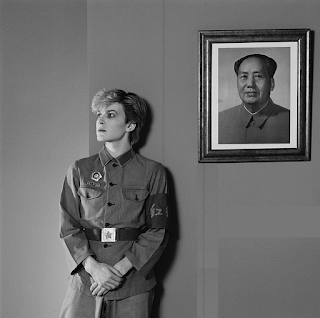 Japan (the band) named themselves after the flashy, showy, speedily evolving conglomerate of a nation, and their music followed in unsurprising lockstep throughout their evolution. Indeed the previous album (Gentlemen Take Polaroids) was a very very cyberpunk affair. Tin Drum dispenses with all that, and barrels headlong into the most daringly artsy material the band would ever produce (duh, it was their last album). The learning curve from Polaroids to Tin Drum proved a massive incline, one that no one saw coming and fucked us all up. We went in expecting an LP like Peter Gabriel's third eponymous solo, world music wrapped around easily digestible pop with a moral sensibility. Nope! 1st listen: it was all so easy to write off as ridiculous Orientalist posturing. 2nd Listen: A little extra time and one realized that this was far from drive-by ethnic thievery, but surprisingly studied shit. It's clear that Sylvian et al spent a great deal of time studying Chinese classical music to pick the kinds of musical structures they could bend their weird pop around. Not to mention they went out of their way to utilize authentic Chinese instruments or create synthetic approximations of what they couldn't find. This is extra effort shit from a band that started out making extra trashy glam rock! I wonder what the Chinese would have made of Tin Drum had the country been as open then as it is today.
Japan (the band) named themselves after the flashy, showy, speedily evolving conglomerate of a nation, and their music followed in unsurprising lockstep throughout their evolution. Indeed the previous album (Gentlemen Take Polaroids) was a very very cyberpunk affair. Tin Drum dispenses with all that, and barrels headlong into the most daringly artsy material the band would ever produce (duh, it was their last album). The learning curve from Polaroids to Tin Drum proved a massive incline, one that no one saw coming and fucked us all up. We went in expecting an LP like Peter Gabriel's third eponymous solo, world music wrapped around easily digestible pop with a moral sensibility. Nope! 1st listen: it was all so easy to write off as ridiculous Orientalist posturing. 2nd Listen: A little extra time and one realized that this was far from drive-by ethnic thievery, but surprisingly studied shit. It's clear that Sylvian et al spent a great deal of time studying Chinese classical music to pick the kinds of musical structures they could bend their weird pop around. Not to mention they went out of their way to utilize authentic Chinese instruments or create synthetic approximations of what they couldn't find. This is extra effort shit from a band that started out making extra trashy glam rock! I wonder what the Chinese would have made of Tin Drum had the country been as open then as it is today. How faithful this is to Chinese musical structure, idk (have to do some homework, someday), but Tin Drum is Art Pop as fuck. So many many counterpoint layers of percussion and that endless fretless bass. No doubt Tin Drum is a challenging listen; every track with a strictly measured protocol; indeed this is easily the strangest synth-pop album of all time (you can take your Talk Talk and stick it). So is it good? Well duh, you get a pop album from perhaps the silliest period in pop ever and it has a formal challenge to your ears greater than most Prog bands can dream. I can see Robert Fripp listening to Tin Drum and going "fuck!" This is an awesome puzzle to work with, and I still don't think I have it all down, yet I expect the score could still go up.
June 4, 2021
"On" Being Boring

Bob Dylan's 80th birthday made me think of those artists who, despite their age, have eschewed the Las Vegas legacy set and continued to create incredible music through the years. One such band, as brought to you in the last post, is the Pet Shop Boys who have been at it now for nearly 40 years.
Those of you who read the column know that I rely on happenstance to determine what I'm into at the moment. I've been in this 80s mood for a month now and collected some of the LPs I once had, from Black Celebration to Heaven or Las Vegas. And I got a good price on something I’ve wanted for a while: One Hundred Lyrics and a Poem from Pet Shop Boys’ Neil Tennent. With a decidedly British eloquence, Neil’s words have inspired me for (ahem, cough, yikes) 40 years.
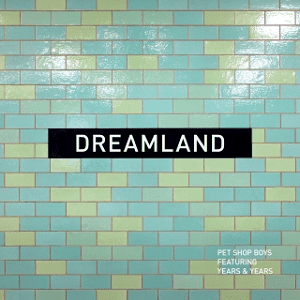 I read it in a day while I listened to Behaviour and Please and Very and although it’s not of the era, "Being Boring" (1990) still speaks volumes to me. I think because it signals the end of my youth in a way, at least my new wave youth, a little wild, full of myself – you’ve been there.But happenstance is a funny bedfellow, and I was drawn once again to the song’s lyrics. I have a tattoo on my forearm; the last line of The Great Gatsby: "So we beat on, boats against the current, borne back ceaselessly into the past." And so, when I read Neil's words on "Being Boring," I shared a bit more synchronicity: "She covered her face with powder and paint because she didn’t need it, and she refused to be bored chiefly because she wasn’t boring. She was conscious that the things she did were the things she had always wanted to do."—Zelda Fitzgerald.The quote attributed to F. Scott Fitzgerald's wife infuses the song with its meaning. It places the reader and listener at the center of the song. It’s about change, and how change brings emotional turmoil, even when it’s for the better.
I read it in a day while I listened to Behaviour and Please and Very and although it’s not of the era, "Being Boring" (1990) still speaks volumes to me. I think because it signals the end of my youth in a way, at least my new wave youth, a little wild, full of myself – you’ve been there.But happenstance is a funny bedfellow, and I was drawn once again to the song’s lyrics. I have a tattoo on my forearm; the last line of The Great Gatsby: "So we beat on, boats against the current, borne back ceaselessly into the past." And so, when I read Neil's words on "Being Boring," I shared a bit more synchronicity: "She covered her face with powder and paint because she didn’t need it, and she refused to be bored chiefly because she wasn’t boring. She was conscious that the things she did were the things she had always wanted to do."—Zelda Fitzgerald.The quote attributed to F. Scott Fitzgerald's wife infuses the song with its meaning. It places the reader and listener at the center of the song. It’s about change, and how change brings emotional turmoil, even when it’s for the better.
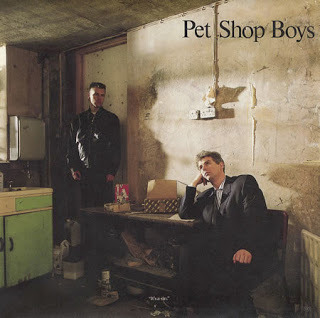 "Being Boring" is the story of life and love and loss. Of hope and expectation. Of youth and in/experience. Neil explains it better, of course, than I do: "My feelings weren't hurt. After Chris Lowe and I performed at Tokyo’s Budokan arena in early July 1989, a Japanese reviewer wrote, 'The Pet Shop Boys are often accused of being boring.' The words 'being boring' took me back to the early '70s and an invitation I had received to the Great Urban Dionysia Party in Newcastle, England, where I grew up."On the invitation was this adaptation of a 1922 Zelda Fitzgerald quote about a flapper friend who had died [he paraphrases]: She was never bored because she was never boring. Thinking of the invitation and quotation reminded me of a close friend who had died of AIDS four months earlier at age 34. He had organized that teenage party. I immediately began writing lyrics to a song I called 'Being Boring.' The theme was an autobiographical look back. My chorus came first:"'Cause we were never being boring / We had too much time to find for ourselves / And we were never being boring / We dressed up and fought, then thought: 'Make amends' / And we were never holding back / or worried that / time would come to an end.'"The first verse was about those parties and finding the invitation with the Fitzgerald quote: "From someone’s wife, a famous writer / in the 1920s / When you’re young you find inspiration / in anyone who’s ever gone / and opened up a closing door.'"The second verse was about me leaving Newcastle on the train to study in London in the early 1970s. I assumed I was never going to move back: 'I'd bolted through a closing door / I would never find myself feeling bored.'"By then, Chris and I had sufficient lyrics to begin writing the music in a little studio in Glasgow, Scotland, in 1989. The third verse would have to wait until we were closer to recording the song."Later, he'd sum it up: "The first verse is set in the 1920s, when the woman writes the invitation, and then we move forward to the hedonistic 1970s when I’m moving to London to seek my fame and fortune. Someone said to us, 'The trouble with you lot is that you’ll have experienced everything by the time you’re 18 – you'll have nothing left to experience.' And then it moves to the start of the 1990s, when my friend has just died. It’s just the sadness of having a close friend die, because I always thought he’d be somewhere there with me. When we were teenagers, we would always discuss that we weren’t going to settle for boring lives, we were always going to do something different. And then when it came down to it, I did become a pop star and at exactly that time he became very ill."
"Being Boring" is the story of life and love and loss. Of hope and expectation. Of youth and in/experience. Neil explains it better, of course, than I do: "My feelings weren't hurt. After Chris Lowe and I performed at Tokyo’s Budokan arena in early July 1989, a Japanese reviewer wrote, 'The Pet Shop Boys are often accused of being boring.' The words 'being boring' took me back to the early '70s and an invitation I had received to the Great Urban Dionysia Party in Newcastle, England, where I grew up."On the invitation was this adaptation of a 1922 Zelda Fitzgerald quote about a flapper friend who had died [he paraphrases]: She was never bored because she was never boring. Thinking of the invitation and quotation reminded me of a close friend who had died of AIDS four months earlier at age 34. He had organized that teenage party. I immediately began writing lyrics to a song I called 'Being Boring.' The theme was an autobiographical look back. My chorus came first:"'Cause we were never being boring / We had too much time to find for ourselves / And we were never being boring / We dressed up and fought, then thought: 'Make amends' / And we were never holding back / or worried that / time would come to an end.'"The first verse was about those parties and finding the invitation with the Fitzgerald quote: "From someone’s wife, a famous writer / in the 1920s / When you’re young you find inspiration / in anyone who’s ever gone / and opened up a closing door.'"The second verse was about me leaving Newcastle on the train to study in London in the early 1970s. I assumed I was never going to move back: 'I'd bolted through a closing door / I would never find myself feeling bored.'"By then, Chris and I had sufficient lyrics to begin writing the music in a little studio in Glasgow, Scotland, in 1989. The third verse would have to wait until we were closer to recording the song."Later, he'd sum it up: "The first verse is set in the 1920s, when the woman writes the invitation, and then we move forward to the hedonistic 1970s when I’m moving to London to seek my fame and fortune. Someone said to us, 'The trouble with you lot is that you’ll have experienced everything by the time you’re 18 – you'll have nothing left to experience.' And then it moves to the start of the 1990s, when my friend has just died. It’s just the sadness of having a close friend die, because I always thought he’d be somewhere there with me. When we were teenagers, we would always discuss that we weren’t going to settle for boring lives, we were always going to do something different. And then when it came down to it, I did become a pop star and at exactly that time he became very ill."On to another topic, if you're not bored yet:
It is common practice in literary discourse to title an article using the word "on." Articles that come to mind are "On Morality" or "On Keeping a Notebook" (both titles from Joan Didion) and of course, Darwin's "On the Origin of Species." That in mind, this little play on words enters into the PSB's 2019 track "On Social Media." While within the song, Neil is singing about people utilizing social media, the lyrics are clearly commentary "on" social media.
A group of my students was analyzing a fiction piece I wrote that was purposefully designed to illustrate the power of reading into things and how it’s not what a writer puts into a piece but what he leaves out. One of the students came up with an eloquent treatise on what I meant that was far more elaborate than anything I had considered. Okay, then, that’s what I meant. At least it was what I meant for this student. Neil's lyrics consistently do the same by allowing readers through their sparsity to make up their own minds regarding meaning. Here Neil does no such thing. "On Social Media" is direct in its approach with Tennent interpolating Marx's statement that "religion is the opiate of the masses." Simply replace religion with social media and there you go.
While democracy is losing its way
And greed is getting greedier
Console yourself with a selfie or two
And post them on social media
Of course, Marx wasn't nearly as funny as Tennent (well, I guess Groucho was, but not Karl). Anyway, the lyrics video herein is the perfect dissertation on our never-take-your-eyes-off-your-cell-phone society.
June 1, 2021
Boring films, I'm your guy (Huge Terrence Malick fan). D...

Boring films, I'm your guy (Huge Terrence Malick fan). Dry, pretentious novels, yep (think 1Q84). The overly dramatic in music – that’s where you’ll find me (David Sylvian, Peter Gabriel). I tend to overthink, read too deep, wallow in the ostentatious. Are you with me? Okay then, you will be simply enamored by the Pet Shop Boys' "Cricket Wife," released this month and available as a part of 2021's Annually.Chris Lowe (the Teller to Tennent's Penn) created the classically inspired instrumental during the pandemic to which Neil Tennent added the lyrics from a poem he'd written earlier. When most of the PSB's creations are collaborations in the truest sense, this piece was more like the virtual partnership of Bernie Taupin and Elton John. The resulting recordings were then mixed into a final track by longtime musical associate Pete Gleadall. The track is described by the Boys as "dramatic," so, count me in.The term "cricket wife" refers to the spouses of U.K. cricketers, a term not unlike the American "basketball wives," but here the wife doesn't necessarily mean a professional athlete's, simply a "sports widow." The lyrics are challenging, aptly complementing the difficult music with lyrics divided into "movements," the first theatrically setting the scene:Time has stoppedThe air is stillNothing movesor ever willPresent tenseis future past…Time is meaningless, we're told. The second section is in quotations, the words of the Cricket Wife: "I'm going homeI've had enoughCall a taxiI want my stuffWhere are my shoes?…."Here we need to be speculative. Going home? To her mother’s, from out of a (mental?) hospital, or she is older and leaving hospice? Whatever, she's befuddled and questions her whereabouts. "Get me out…. Where am I?" She "can't remember why or when they brought me here."For the third movement, the dialogue becomes internal, as if spoken by a narrator or the author of a novel: "Another sigh/ Then sleep to dream." All the unpleasantries of the first scene are replaced by the sound of "girlish laughter." She's young again. The final scene is set: A sunny dayHis turn to batThe cricket wivessip tea and chatShe is again part of a group of young wives watching their husbands play a sport that is their first love. And then the drama concludes with the young-again cricket wife and her husband walking away from the field arm in arm.They're off togetherAnd that was thatand is foreverThe song, like "Penny Lane" is filled with English colloquial eccentricities and phrases, from "I smell a rat," to using the word "innings," which we American's borrowed for our national pastime. It's interesting to note that the obsession with Cricket leads to an important insight into the lyrics – at least for me: the English utilize "good innings" as a way to say that someone deceased has had a good life. In that, much of the orchestral pieces sound like a funereal dirge, it fits right in."Cricket Wife" is complex musically and lyrically and takes a half dozen listens until one is obsessed.
May 23, 2021
This Charming Man
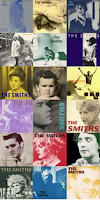 Cranky Steven Patrick Morrissey was most comfortable in his childhood bedroom, firing off vitriolic missives to music magazines. Awkward and sexually ambiguous, he seemed neither frontman nor poster boy. Yet one day in 1982, Johnny Marr knocked on his door on a hunch that the 23-year-old misfit might become "this charming man." The partnership that ensued led to the most important music of the decade (if not the most influential). Marr was, alongside Robert Smith of The Cure, the most inventive guitarist of his generation, whether providing the jangle to "This Charming Man" the siren squall to "How Soon Is Now?" the cinematic scope of "Last Night I Dreamt That Somebody Loved Me," or the delicate solo to "Shoplifters of the World Unite." And Morrissey’s lyrics followed in the tradition of Oscar Wilde and Rimbaud — lovelorn, yes, but funny, literate, smart, alive.
Cranky Steven Patrick Morrissey was most comfortable in his childhood bedroom, firing off vitriolic missives to music magazines. Awkward and sexually ambiguous, he seemed neither frontman nor poster boy. Yet one day in 1982, Johnny Marr knocked on his door on a hunch that the 23-year-old misfit might become "this charming man." The partnership that ensued led to the most important music of the decade (if not the most influential). Marr was, alongside Robert Smith of The Cure, the most inventive guitarist of his generation, whether providing the jangle to "This Charming Man" the siren squall to "How Soon Is Now?" the cinematic scope of "Last Night I Dreamt That Somebody Loved Me," or the delicate solo to "Shoplifters of the World Unite." And Morrissey’s lyrics followed in the tradition of Oscar Wilde and Rimbaud — lovelorn, yes, but funny, literate, smart, alive. Tony Fletcher in his bio A Light That Never Goes Out says, "Those my own age, most of us parents now, some even with angst-ridden teenagers of our own, mostly greet a mention of the Smiths as if I was speaking of a former lover. I imagine they're the soundtrack for as many lovelorn teens now as they were back in the 1980s. They're cherished in a way that it's hard to cherish the Beatles or the Rolling Stones. Their songs might have charted higher and sold more, but they never had a 'How Soon Is Now?' with a line like 'I am human and I need to be loved/ Just like everybody else does.' The Smiths knitted together the people who knew them and loved them. "I think he was just waiting for the right person to knock on his door," Marr said of their first encounter. Morrissey was essentially 'discovered' by an 18-year-old kid, and lo and behold off they went to become the greatest partnership since Lennon/McCartney. And yet Marr had to pass a test: Morrissey had a huge collection of singles. He asked Johnny to play a song. Marr found a rare single by the Marvelettes, put on the B-side, "You're the One," and sang along to every word. A+, indeed, the right choice.
Tony Fletcher in his bio A Light That Never Goes Out says, "Those my own age, most of us parents now, some even with angst-ridden teenagers of our own, mostly greet a mention of the Smiths as if I was speaking of a former lover. I imagine they're the soundtrack for as many lovelorn teens now as they were back in the 1980s. They're cherished in a way that it's hard to cherish the Beatles or the Rolling Stones. Their songs might have charted higher and sold more, but they never had a 'How Soon Is Now?' with a line like 'I am human and I need to be loved/ Just like everybody else does.' The Smiths knitted together the people who knew them and loved them. "I think he was just waiting for the right person to knock on his door," Marr said of their first encounter. Morrissey was essentially 'discovered' by an 18-year-old kid, and lo and behold off they went to become the greatest partnership since Lennon/McCartney. And yet Marr had to pass a test: Morrissey had a huge collection of singles. He asked Johnny to play a song. Marr found a rare single by the Marvelettes, put on the B-side, "You're the One," and sang along to every word. A+, indeed, the right choice.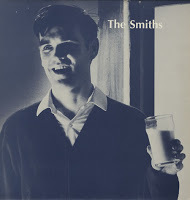 Got Milk?Like REM from the same era, The Smiths' canon was chock full of poetry, poly-syllabic words (in Morrissey’' case you could understand them – Stipe is a different story), and intermittent moans and groans. The Smiths made you (make you) feel smarter, less pathetically alone, and more sexually excited than any band of any era. Marr's ability to make musical poetry worthy of Morrissey's twisted, elevated, and self-obsessed lyrics is irresistible.
Got Milk?Like REM from the same era, The Smiths' canon was chock full of poetry, poly-syllabic words (in Morrissey’' case you could understand them – Stipe is a different story), and intermittent moans and groans. The Smiths made you (make you) feel smarter, less pathetically alone, and more sexually excited than any band of any era. Marr's ability to make musical poetry worthy of Morrissey's twisted, elevated, and self-obsessed lyrics is irresistible.It's been 30 odd now since the first LP, yet it remains fresh and honest, sincere and overwhelming, just like yesterday. The best tracks:
 "This Charming Man" - The Smiths' effortlessly catchy second single finds Morrissey getting a tempting proposition from an older, suave and "charming man" in a fancy car with smooth leather seats. There's a simultaneous sense of decadence and elegance. More so than any other riff on the album, Marr's glistening guitar-work encourages the listener to get up and dance, with Rourke's walking bass line injecting an even deeper groove.
"This Charming Man" - The Smiths' effortlessly catchy second single finds Morrissey getting a tempting proposition from an older, suave and "charming man" in a fancy car with smooth leather seats. There's a simultaneous sense of decadence and elegance. More so than any other riff on the album, Marr's glistening guitar-work encourages the listener to get up and dance, with Rourke's walking bass line injecting an even deeper groove."Hand in Glove" - The band's first single is still a truly beautiful song. Marr and Rourke weave their instruments in and out to create an ominous new wave soundscape, while Morrissey gives a dire vocal performance that's classic Smiths. He sings words of devotion, almost sure he's found love, but has that nagging feeling he'll soon lose it. The piercing wail of harmonica adds the perfect amount of torture to the mix.
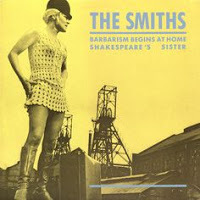
"What Difference Does It Make?" - As the album's most direct "rock song" kicks into gear, it's clear that side B has outdone "The Smiths'" A side. With its prominent new wave guitars and strong hooks, this single is less challenging than much of the album's other cuts (perhaps that's why both Morrissey and Marr have since criticized it), though it's still one of the Smiths' most enduring songs. Morrissey's wailing falsetto in the outro remains deeply glamorous.
May 22, 2021
The Smiths - The Hollywood Palladium - 1985
 Of course there isn't complete disregard of historic venues; while many, like the Fillmore, live on, in spirit or tribute, many have been recognized for their cultural significance, others have just been lucky. The best example in L.A., more so even than The Whiskey or The Troubadour (their significance in rock history unparalleled), is The Hollywood Palladium. The Palladium building is a cornerstone example of L.A. art deco architecture. It was designed by Gordon Kaufmann, the legendary architect who also did the L.A. Times building downtown, the Greystone Mansion in Beverly Hills and, most famously, Hoover Dam. The venue opened in 1940 and traces its history from the big band era through the filming of The Lawrence Welk Show in the 60s and on to decades of pop music concerts. From the 70s through the teens, the venue has hosted landmark performances by everyone from The Rolling Stones to Chuck Berry, The Smiths to Jay Z. In 2008, the venue was closed temporarily for renovations, and the front marquee and main "blade" signage were restored. In my youth, Hollywood was indeed a land of dreams – movie palaces and C.C. Brown's, Pig and Whistle and Musso and Frank's; the Walk of Stars. Growing up instead, Hollywood Blvd. was hustlers and drugs, Hari krishnas and Scientologists. While the Seven Seas was my haunt, Hollywood was haggard and dangerous. It's nice to know that glamour has returned, that the Chinese and the Egyptian and the Cinerama Dome are safe, but unlike Times Square, there’s still a grit to it, a seedy Tom Waits feel.
Of course there isn't complete disregard of historic venues; while many, like the Fillmore, live on, in spirit or tribute, many have been recognized for their cultural significance, others have just been lucky. The best example in L.A., more so even than The Whiskey or The Troubadour (their significance in rock history unparalleled), is The Hollywood Palladium. The Palladium building is a cornerstone example of L.A. art deco architecture. It was designed by Gordon Kaufmann, the legendary architect who also did the L.A. Times building downtown, the Greystone Mansion in Beverly Hills and, most famously, Hoover Dam. The venue opened in 1940 and traces its history from the big band era through the filming of The Lawrence Welk Show in the 60s and on to decades of pop music concerts. From the 70s through the teens, the venue has hosted landmark performances by everyone from The Rolling Stones to Chuck Berry, The Smiths to Jay Z. In 2008, the venue was closed temporarily for renovations, and the front marquee and main "blade" signage were restored. In my youth, Hollywood was indeed a land of dreams – movie palaces and C.C. Brown's, Pig and Whistle and Musso and Frank's; the Walk of Stars. Growing up instead, Hollywood Blvd. was hustlers and drugs, Hari krishnas and Scientologists. While the Seven Seas was my haunt, Hollywood was haggard and dangerous. It's nice to know that glamour has returned, that the Chinese and the Egyptian and the Cinerama Dome are safe, but unlike Times Square, there’s still a grit to it, a seedy Tom Waits feel. For me, The Hollywood Palladium fit right into my new wave sensibility. I could easily see the evolution from Sinatra to Morrissey, from Zappa to Talking Heads.
For me, The Hollywood Palladium fit right into my new wave sensibility. I could easily see the evolution from Sinatra to Morrissey, from Zappa to Talking Heads. A Ho-Hum Interlude: While I regret the loss of what once was, from The New Florentine Gardens to Madame Wong's, I guess purgatory is worse. Just a brief history of what I still refer to as The Aquarius Theater. Opened in its art deco setting in the 1930, The Errol Carroll Theater was one of golden Hollywood's icons, like the sign and The Magic Castle. The theater's slogan is a gem of a by-gone era: "Through these portals pass the most beautiful girls in the world." The signage out front was a 39 foot neon of one of those beautiful girls, Beryl Wallace. When Errol Carroll died in 1948, the club became the even more famous Hollywood Moulin Rouge. By the 60's the club became the ABC studio for Hullaballoo, a teen dance program, before it was transformed into The Aquarius Theater for the musical Hair. The Doors played their most famous shows at the Aquarius (and also under its former banner The Kaleidoscope, which only lasted for a few months). The theater would have bursts of energy throughout the 80s, but, and here's where ho-hum begins, it was transformed in Nickelodeon's L.A. studios in the mid 90s. Today Nickelodeon has all but abandoned the property and the famous building's fate remains unknown.

Back to the good part: The Smiths played the Palladium in 1985. While the L.A. Times didn't appreciate the show, stating, "For someone who preaches an intense relationship between artist and audience, Morrissey was pretty remote," they still acknowledged the intensity of the band: "The Smiths are trying to be more than just a rock band. Under the leadership of the fragile flower known as Morrissey, the English group has taken on the air of a crusade, waving the banner of musical simplicity, naked emotion and fierce independence.
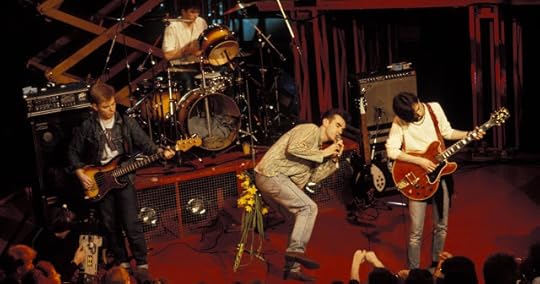 "Rejecting punk's rage but embracing its rebellious idealism, replacing the image-making and show-biz manipulation of kindred acts like Frankie Goes to Hollywood and Boy George with a cultivated innocence, the Manchester quartet has built a following of fans seeking something that the cold synthesizer bands aren't providing: human contact."
"Rejecting punk's rage but embracing its rebellious idealism, replacing the image-making and show-biz manipulation of kindred acts like Frankie Goes to Hollywood and Boy George with a cultivated innocence, the Manchester quartet has built a following of fans seeking something that the cold synthesizer bands aren't providing: human contact."Despite the so-so review, this writer, meaning me, only remembers an atmosphere that must have resembled that of the crowd surrounding St. John the Baptist; spectators, like me, emotionally drained and yet somehow fulfilled.
How could it possibly be, then, that Morrissey's ten day stint at The Palladium twenty-two years later was that much more transplendent (is that a word, or just something I heard in Annie Hall?). I found it impossible to take my eyes from him, and as a displaced Angeleno living outside Philadelphia today, I could feel how much of an L.A. vibe Morrissey exuded. Songs like "How Soon Is Now" and "Stretch Out and Wait" had me ugly crying. Ten years later, I have my Morrissey tickets in hand for his show at The Philadelphia Fillmore. Guess I better bring tissues.
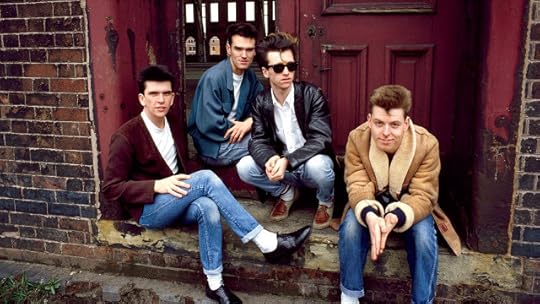
May 20, 2021
The Police at Madame Wong's
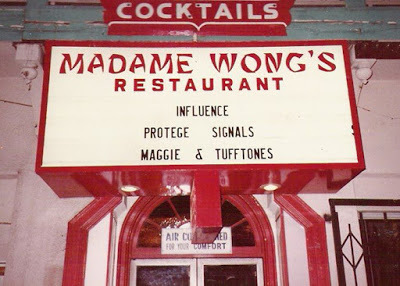 As the 70s made way for the 80s, L.A. was a treasure trove of musical diversity, from the more mellow faction that played the Troubadour (Rickie Lee, Tom Waits) to the Starwood, traditionally the haunt of hair metal and punk, or to the Whiskey and the Roxy, which by 1981 were the venues of the new wave, from the Go-Gos to Siouxsie and the Banshees. There was music everywhere. The clubs, as well, were in full swing. For me and my crowd, it was the Seven Seas (across from the Chinese in Hollywood) or the Lhasa Club, while the punk scene was all about the Masque, a firetrap in a basement in Hollywood, and Al's Bar or Cathay de Grande. While we'd frequent many of the clubs where we often weren’t wanted, everyone was welcome at Madame Wong's in Chinatown. We'd go on Sundays to see what ended up the house band in the early 80s, Mystic Knights of the Oingo Boingo.
As the 70s made way for the 80s, L.A. was a treasure trove of musical diversity, from the more mellow faction that played the Troubadour (Rickie Lee, Tom Waits) to the Starwood, traditionally the haunt of hair metal and punk, or to the Whiskey and the Roxy, which by 1981 were the venues of the new wave, from the Go-Gos to Siouxsie and the Banshees. There was music everywhere. The clubs, as well, were in full swing. For me and my crowd, it was the Seven Seas (across from the Chinese in Hollywood) or the Lhasa Club, while the punk scene was all about the Masque, a firetrap in a basement in Hollywood, and Al's Bar or Cathay de Grande. While we'd frequent many of the clubs where we often weren’t wanted, everyone was welcome at Madame Wong's in Chinatown. We'd go on Sundays to see what ended up the house band in the early 80s, Mystic Knights of the Oingo Boingo.
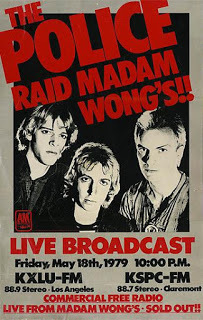 L.A.'s Chinatown is still unique with neon and Asian architecture mid-Century modern California style), but when Polynesian acts stopped drawing the crowds in the mid-70s, Esther Wong opened her restaurant to punk music. I love her quote, "Before I didn’t think I would ever like punk music. Now, I turn it on and it doesn’t bother me." Among the bands who got their start or at least a bit of fame due to Esther Wong were the Bus Boys, the Plimsouls, the NuCats and X, among a myriad of others. For our crew, we made our pilgrimage on Sundays for Oingo Boingo, and then, on one initially disappointing night, May 17, 1979, we got in line for a new band from whom we’d sparingly heard one song on the radio called "Roxanne," which made it to No. 22 on the Billboard charts. Little did we know that The Police would become the biggest band in the world before the 80s would end.We didn't get in, but as usual, hung outside with a six-pack of beer and watched as the seemingly staged gig took place – indeed, the event was a marketing and photo-op ploy by the band's label, A&M. Rumor has it that Madame Wong stepped in and had A&M add a second show and in we went. The band played nearly the entirety of their debut Outlandos d'amour, and we were among the first to hear excerpts from Reggatta de Blanc which would seal the band's success later in 1979. I particularly remember the night's rendition of "Bring on the Night." The last two songs of the set were "Message in a Bottle" and, of course, "Roxanne."
L.A.'s Chinatown is still unique with neon and Asian architecture mid-Century modern California style), but when Polynesian acts stopped drawing the crowds in the mid-70s, Esther Wong opened her restaurant to punk music. I love her quote, "Before I didn’t think I would ever like punk music. Now, I turn it on and it doesn’t bother me." Among the bands who got their start or at least a bit of fame due to Esther Wong were the Bus Boys, the Plimsouls, the NuCats and X, among a myriad of others. For our crew, we made our pilgrimage on Sundays for Oingo Boingo, and then, on one initially disappointing night, May 17, 1979, we got in line for a new band from whom we’d sparingly heard one song on the radio called "Roxanne," which made it to No. 22 on the Billboard charts. Little did we know that The Police would become the biggest band in the world before the 80s would end.We didn't get in, but as usual, hung outside with a six-pack of beer and watched as the seemingly staged gig took place – indeed, the event was a marketing and photo-op ploy by the band's label, A&M. Rumor has it that Madame Wong stepped in and had A&M add a second show and in we went. The band played nearly the entirety of their debut Outlandos d'amour, and we were among the first to hear excerpts from Reggatta de Blanc which would seal the band's success later in 1979. I particularly remember the night's rendition of "Bring on the Night." The last two songs of the set were "Message in a Bottle" and, of course, "Roxanne."May 17, 2021
The Day Before You Came
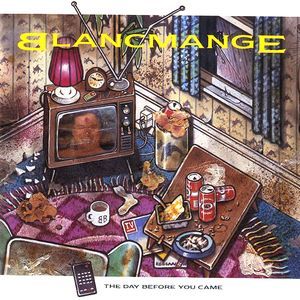 Of all people, it was Max Ten who found the humor in Morrissey; he'd play Tom Waits' Swordfishtrombones, that raspy, sandpaper croon, and say, "Beautiful." As the rest of us immersed ourselves in a mire of 80s dirges, it's ironic that it was Tennial, the intellectual in our group, who burst into the apartment with Altered Images' "Happy Birthday," all giddy - "This girl is so cute!" Another day he comes up and says "You've got to hear this." It was Blancmange's cover of the Abba offering, "The Day Before You Came." We listened to it five times in a row. "That is so f-ing deep." "Deep?" I asked. "I know it's over." "Death is everywhere." "Remember the time when the trees fell down?" That was deep, but "I must have opened my front door at eight o'clock or so,/ And stopped along the way to buy some Chinese food to go./ I'm sure I had my dinner watching something on TV,/ There's not, I think, a single episode of Dallas that I didn't see."
Of all people, it was Max Ten who found the humor in Morrissey; he'd play Tom Waits' Swordfishtrombones, that raspy, sandpaper croon, and say, "Beautiful." As the rest of us immersed ourselves in a mire of 80s dirges, it's ironic that it was Tennial, the intellectual in our group, who burst into the apartment with Altered Images' "Happy Birthday," all giddy - "This girl is so cute!" Another day he comes up and says "You've got to hear this." It was Blancmange's cover of the Abba offering, "The Day Before You Came." We listened to it five times in a row. "That is so f-ing deep." "Deep?" I asked. "I know it's over." "Death is everywhere." "Remember the time when the trees fell down?" That was deep, but "I must have opened my front door at eight o'clock or so,/ And stopped along the way to buy some Chinese food to go./ I'm sure I had my dinner watching something on TV,/ There's not, I think, a single episode of Dallas that I didn't see."Max Ten saw past our agoraphobic wallowing, recognized the melancholy poseur in each of us, and just started to laugh ("Stop, me, oh oh oh, stop me; stop me if you think you've heard this one before.") "So fucking funny," he'd say. On the sk8tr girl incident: "Jesus, Jay, deal."
"I know it's over."
"Don't quote Morrissey to me."
"I'm not."
"La la la. 'Last night I dreamed that somebody loved me.'"
"So?"
"She wasn't that hot."
"Yeah, she was."
"Yeah. Sorry," he said, and then facetiously, "There, there."
Music for Lovers - The Opposite of Punk
 Never was there an artist who captured unrequited love like Robert Smith in "A Thousand Hours" and "Just One More Time" from the LP Kiss Me Kiss Me Kiss Me. These are angst ridden and beautiful poems that stand alongside Shelley and Keats. And Morrissey's funny aloofness was gut-wrenching. We had choices back then, the sour dirges of the big three (Cure, Smiths, JD) or the peppy poppy playfulness of Haircut 100, Altered Images and ABC. The third tine of this trident, Cocteau Twins and the 4AD contingent, were for lovers. This was late night, gaze into one another's eyes music, like Death Cab. The concept sounds sappy now, and why, because we are, in the new millennium, too cool for love.
Never was there an artist who captured unrequited love like Robert Smith in "A Thousand Hours" and "Just One More Time" from the LP Kiss Me Kiss Me Kiss Me. These are angst ridden and beautiful poems that stand alongside Shelley and Keats. And Morrissey's funny aloofness was gut-wrenching. We had choices back then, the sour dirges of the big three (Cure, Smiths, JD) or the peppy poppy playfulness of Haircut 100, Altered Images and ABC. The third tine of this trident, Cocteau Twins and the 4AD contingent, were for lovers. This was late night, gaze into one another's eyes music, like Death Cab. The concept sounds sappy now, and why, because we are, in the new millennium, too cool for love. 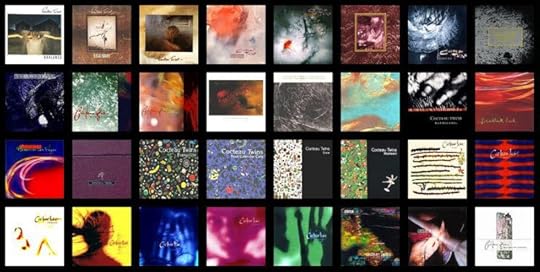
According to The Guardian, "Pop was always Elizabeth Fraser's escape. Back in Grangemouth, a horrendous petrochemical town in Stirlingshire, she seemed destined to follow her mother into the local rag trade until she realized that having 'boxing gloves for hands' meant she could barely operate the machines. She would go dancing at a local club, the Nash, which is where she met Robin Guthrie; he spotted the 17-year-old Fraser on the dance floor one night in 1980 and asked her to join the band he'd started with his friend Will Heggie. By saying yes, Fraser acquired a soulmate and an enabler. 'I looked up to him. I could never have done it without him.' The distinctive sound they developed 'flowed from the chemistry between us,' particularly once Simon Raymonde, a Londoner, replaced Heggie."
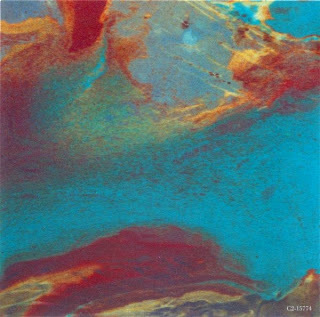 So many people swear by their influence, claiming that they swept them off their feet on first listen. The indefinable beauty of the melodies combined with the utter indecipherability of Fraser's lyrics to form some sort of nondescript parable. Her vocal dexterity segues seamlessly into Guthrie's dreamy guitars, creating a cacophony of harmonious noise. Cocteau Twins is one of the few bands that can guide you to another world. That netherland of their third album, Treasure, is oddly familiar, but still like nothing anyone has ever heard or felt. The song titles refer to Greek mythology, some have meaning in an estranged folklore, yet in the end there's no point of reference to anything in the "real" world. Liz Fraser's ethereal voice sings beautiful, unique, lullaby-like melodies over a mat of Robin Guthrie's guitar work, creating a dream you haven't dreamt before. It was music you put on for intimacy, a music that allowed you to lose your virginity over and again; not since "The Great Gig in the Sky" had there been so many utterances of "Oh my God, Oh my God" in its presence. If Heaven exists (which it does… discuss…), this is the music they play.
So many people swear by their influence, claiming that they swept them off their feet on first listen. The indefinable beauty of the melodies combined with the utter indecipherability of Fraser's lyrics to form some sort of nondescript parable. Her vocal dexterity segues seamlessly into Guthrie's dreamy guitars, creating a cacophony of harmonious noise. Cocteau Twins is one of the few bands that can guide you to another world. That netherland of their third album, Treasure, is oddly familiar, but still like nothing anyone has ever heard or felt. The song titles refer to Greek mythology, some have meaning in an estranged folklore, yet in the end there's no point of reference to anything in the "real" world. Liz Fraser's ethereal voice sings beautiful, unique, lullaby-like melodies over a mat of Robin Guthrie's guitar work, creating a dream you haven't dreamt before. It was music you put on for intimacy, a music that allowed you to lose your virginity over and again; not since "The Great Gig in the Sky" had there been so many utterances of "Oh my God, Oh my God" in its presence. If Heaven exists (which it does… discuss…), this is the music they play.And for me it was 1986's Love's Easy Tears (AM10, EP) that perfected the ethereal carnality of it, angel trumpets and devil trombones (to borrow from Alex), this EP was the epitome of "leaving them with less," the listener yearning for more, yet when there is a song like "Those Eyes, That Mouth," why would anyone even try for more? There is no more, really, to say than "Those Eyes, That Mouth," (Keats and Yeats were on her side….). Oddly, it wasn't till many, many years later that I came to the realization that the song had lyrics, real lyrics, mind you; imagine that:
He draws his horsesPretend your angerAnd draws his horsesBeing chosen also
Please get upFall, please get upFall, please get upDon't ruin yourself
So see and hearSultitan itanSo see and hearPlain tiger iger
In my heartSet you right upIn my heartI sing this song
Back you upHow messed I amBack you upI consider
So he got upI must see himI must see himAnd all got up
Sore got heApalled got upApalled got upI'm in this song
So see and hearSultitan itanSo see and hearPlain tiger iger
And my defeat and hope And sad and hope Might not feel downDon't listen, now



